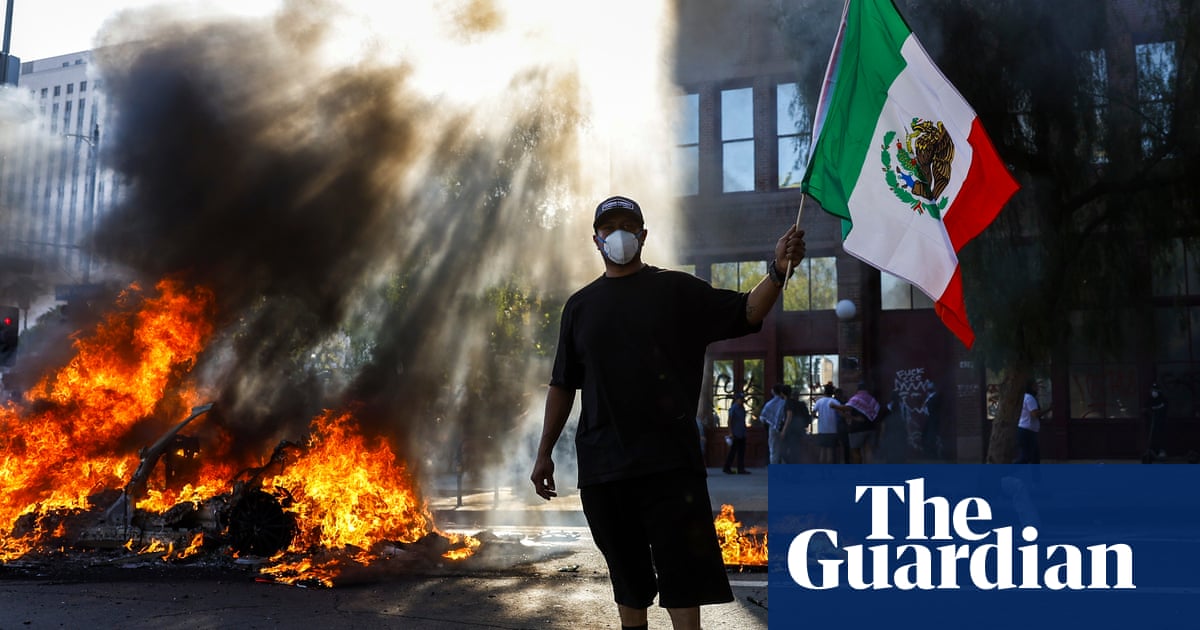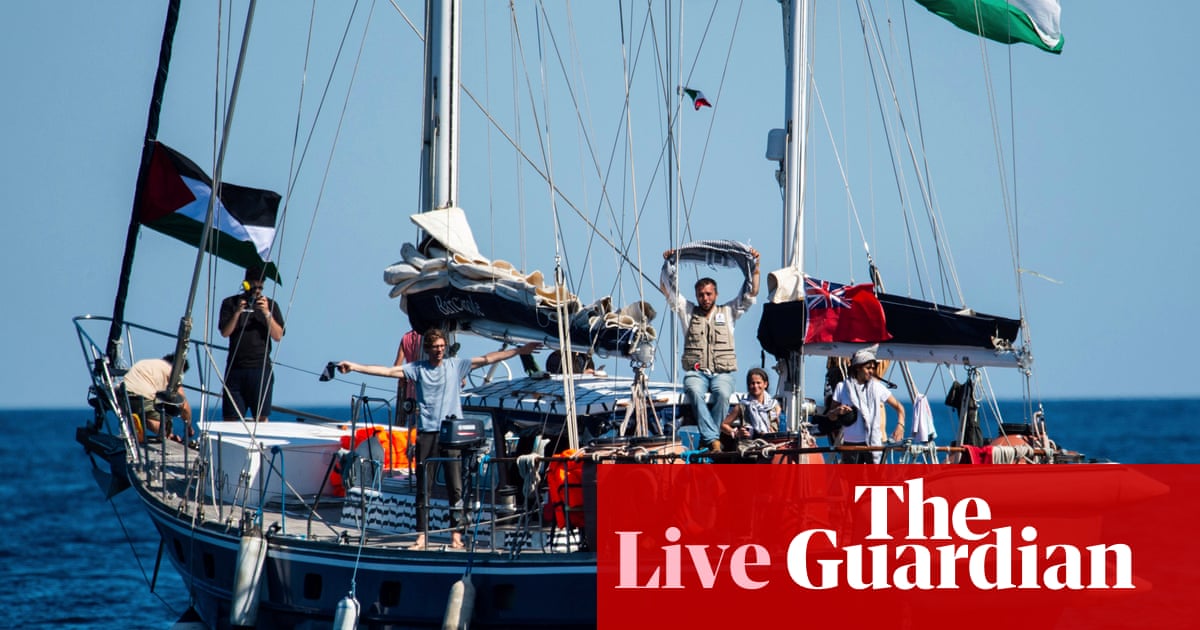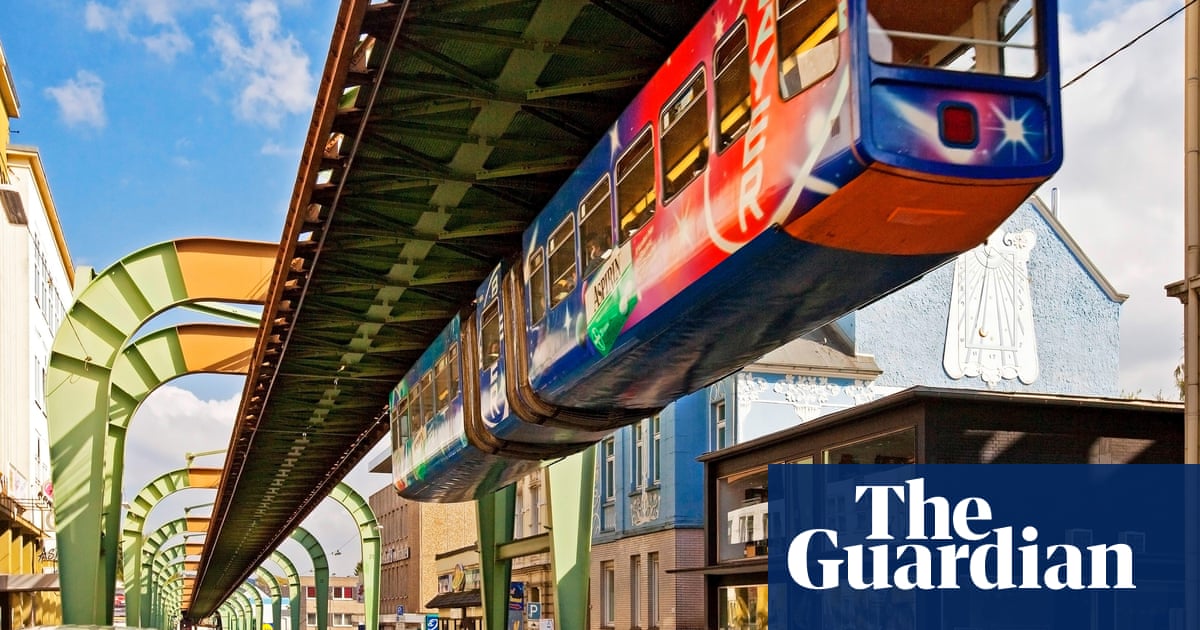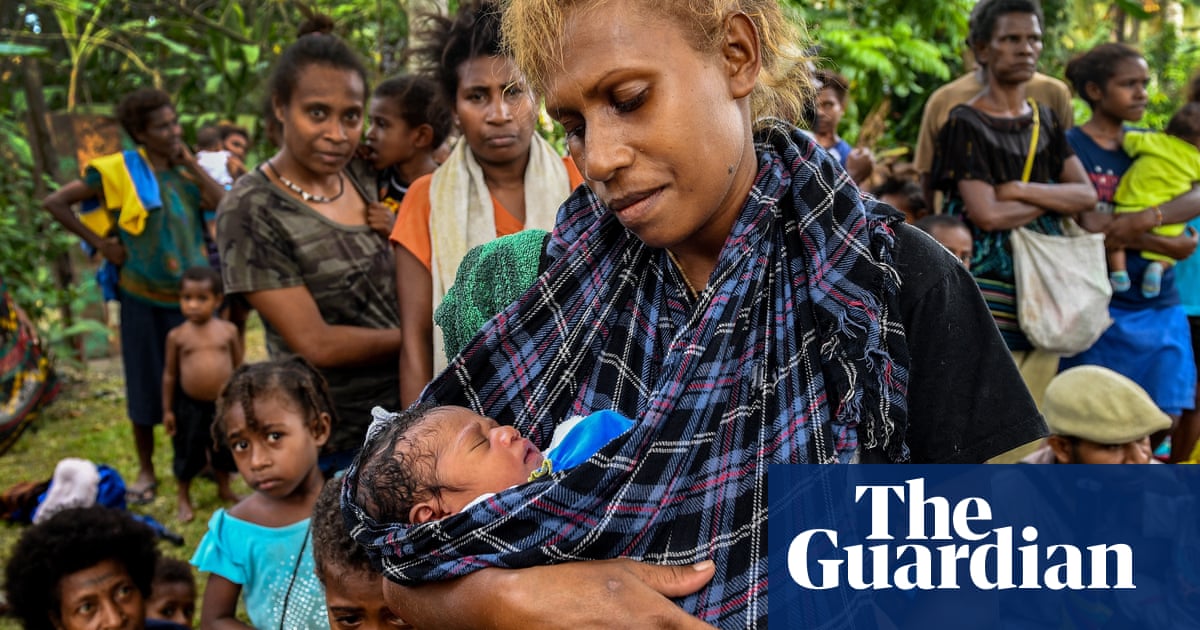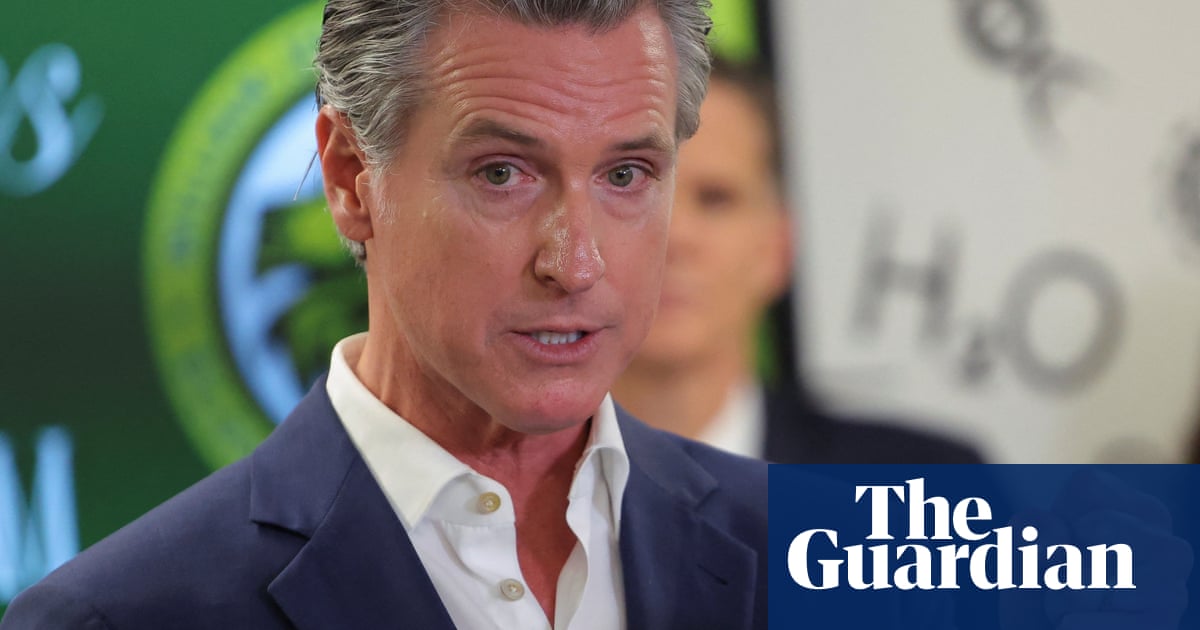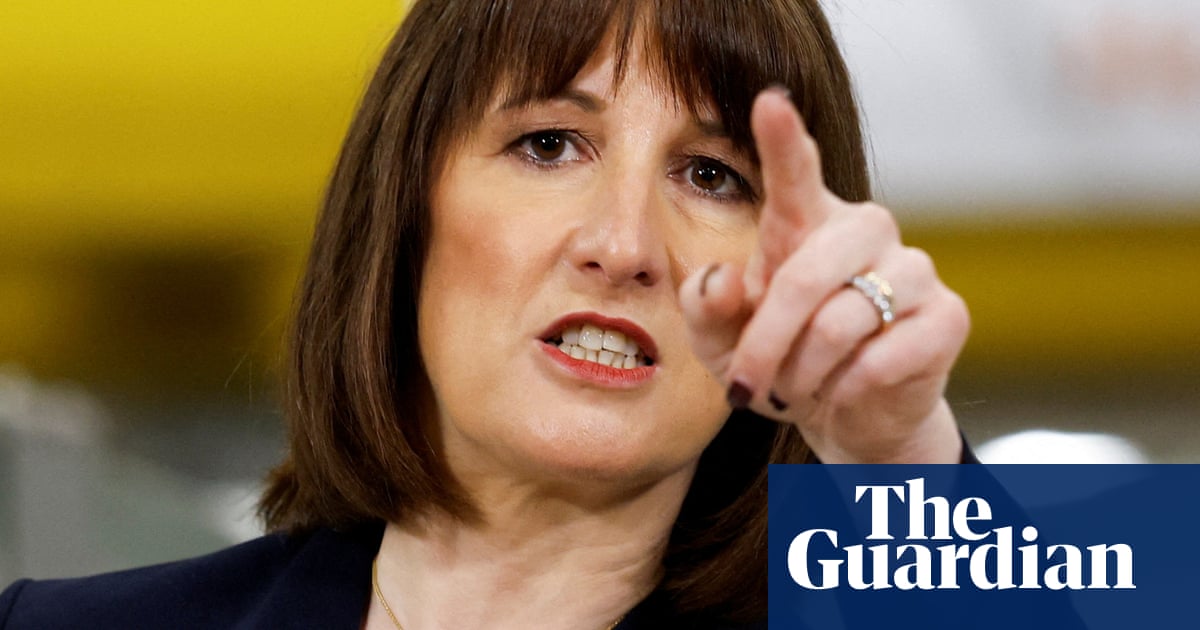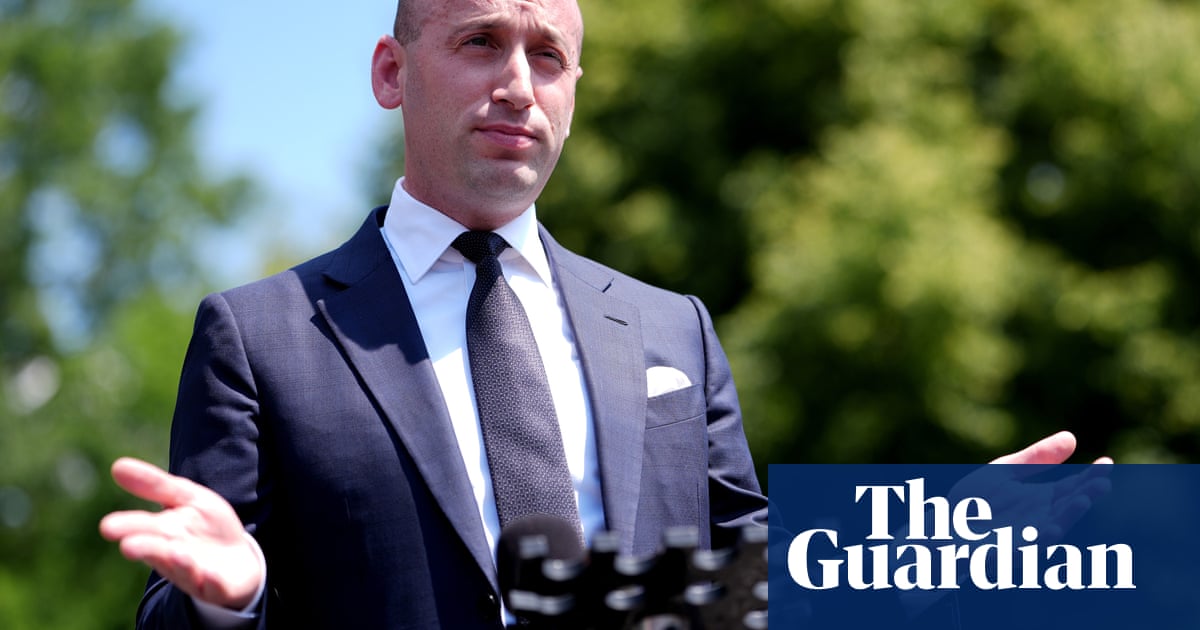In the run-up to Sunday’s election in Germany the political climate has become more heated. There have been attacks on politicians and campaign workers, and election posters have been destroyed. Many felt unsettled or even threatened after Friedrich Merz, the leader of the centre-right CDU, proposed a bill to tighten immigration control that had the backing of the far-right Alternative für Deutschland.

-
Björn Höcke, the AfD’s leader in Thuringia and head of its nationalist wing, speaks at the Domplatz in Erfurt during the party’s final campaign event before state elections, 31 August 2024.
The AfD, classified as a suspected rightwing extremist party by domestic intelligence, celebrated the cracking of the “firewall” against working with the far-right in the Bundestag. Mass demonstrations erupted in response and the Holocaust survivor Albrecht Weinberg returned his federal order of merit in protest.

-
The new-right influencer Ketzer der Neuzeit, real name Leonard Jäger, interviews the AfD co-leader Alice Weidel after the conclusion of the federal convention in Riesa, Saxony, 12 January 2025. Jäger’s YouTube channel often features conspiracy theory content and is aimed primarily at a younger audience.
The role of disinformation and social media
The AfD’s rise has been fuelled by disinformation, which accelerated during the 2020 Covid-19 pandemic when the Querdenken movement was founded. During this phase, parts of the AfD mixed more and more with conspiracy theorists and far-right extremists. At the same time, social media apps, such as TikTok, Telegram and Twitter (now X), became increasingly widespread in Germany, allowing content and narratives to spread mostly unfiltered. No other German party has been as successful as the AfD on these social media platforms, especially on TikTok.

-
Katrin Nolte, an author for rightwing media such as the Deutschland-Kurier online outlet, films content in Potsdam shortly after the announcement of the results of the Brandenburg state elections. 22 September 2024.
There is an increasing attempt to push conspiracy theories and historical revisionism into the mainstream. In January, the AfD co-leader Alice Weidel falsely claimed in an online discussion with Elon Musk that “Hitler was a communist”. The AfD has since invited Musk to a campaign event, despite him making a gesture that was widely interpreted in Germany as a Hitler salute. In response, the artists’ group Zentrum für Politische Schönheit (ZPS) projected an image of Musk’s gesture on to a Tesla factory in Brandenburg. Ironically, ZPS, which has repeatedly campaigned for the prohibition of the AfD, is now under police investigation for displaying unconstitutional symbols – the Hitler salute is forbidden in Germany.

-
The AfD decorates its election party room in the Hessian state parliament, Wiesbaden, 8 October 2023.
The AfD often plays with ambiguities or statements that are close to criminal offences. The 2025 election campaign slogan, Alice für Deutschland (Alice for Germany), is strongly reminiscent of the slogan of the Sturmabteilung (SA, or Storm Division, the Nazi party’s paramilitary wing) Alles für Deutschland (Everything for Germany). These are ambiguous signs, but the target rightwing extremist audiences understand them perfectly while more bourgeois voters often play them down.

-
The memorial stone for Habil Kılıç, a victim of the NSU terrorist cell that operated as an underground organisation, is partially overgrown by grass. In the city park in Zwickau, Saxony, the 10 victims of the far-right NSU are commemorated in this way. Victims’ associations have criticised the lack of involvement of the bereaved and families of the murder victims in the design of the memorial site. Zwickau, Saxony, 28 May 2024.
Escalating violence and historical parallels
Support for the AfD is rising rapidly, particularly in rural areas struggling economically and with poor infrastructure, and where politicians such as Björn Höcke, the AfD’s leader in Thuringia, and Maximilian Krah, an MEP and the party’s top candidate in the 2024 European parliament elections, are regarded as role models for many young men despite numerous scandals. Both specifically appeal to their young audiences at campaign events and on social media. Höcke, who is also considered a powerful leader of the nationalist wing within the AfD, was found guilty by a court in 2024 for using a banned Nazi slogan.
Germany has had a long history of rightwing violence since the end of the second world war, and deadly attacks have continued. The fifth anniversary of the racist Hanau 2020 attack, which claimed nine young lives, was marked just days before federal elections in which the AfD is expected to become the second-strongest political force. Survivors, friends and relatives of the murdered held a banner at a protest stating: “The AfD participated in the shooting.”

-
Inside the Magdeburg regional court where Stephan B, a rightwing extremist from Halle who killed two people and attempted to attack a synagogue in 2019, was on trial over his attempted prison escape and hostage-taking. Saxony-Anhalt, 29 January 2024. He independently assembled a firearm in the Burg high-security prison and took hostages; the prison guards involved are said to still be traumatised.
Four months before the Hanau attack, another far-right extremist attacked a synagogue in Halle and later a kebab shop, killing two people. In prison, he managed to assemble a weapon and nearly escape. Earlier in February 2025, a young man was arrested in Brandenburg for allegedly preparing to attack a complex that was housing asylum seekers.

-
Funeral march for “SS-Siggi” Siegfried Borchardt in Dortmund, North Rhine-Westphalia, 9 October 2021. Local rightwing extremism experts suspect the neo-Nazi, who was known beyond the region, took secrets about the NSU to his grave.
A growing culture of rightwing violence
Young rightwing extremists in Germany are becoming increasingly militant. Reports indicate that radicalised youths are not only consuming propaganda online but forming violent groups. These groups target minorities, political opponents and journalists, often glorifying past rightwing terrorist acts. Training camps and self-defence courses with links to far-right networks have been uncovered, where young men are trained in combat techniques under the guise of “self-protection”. Experts warn this growing culture of violence could lead to a further increase in politically motivated attacks, making the threat of far-right extremism more immediate and tangible than ever.

-
Two children display paintings on their arms at an AfD campaign event in Stadtroda, Thuringia, 7 August 2024.
Normalising extremism: from rhetoric to action
The AfD’s rhetoric dehumanises minorities, using terms such as “subsidised knifemen” and “headscarf girls”. The creation of categories of people, good and bad, is reminiscent of Germany’s darkest chapter of history. Meanwhile, the election discourse is dominated by the topics of migration, border controls and deportation, sidelining issues such as climate change and technological progress.

-
Members of the small rightwing extremist party Der Dritte Weg (The Third Way) trample over an EU flag at the start of a march in Plauen, Saxony, 1 May 2019. The party continues to find new young members.

-
A protester trying to block an access road to the AfD’s federal party conference is carried away by police. Riesa, Saxony, 11 January 2025. The large-scale demonstration with road blockades had an effect: numerous MPs and leading politicians arrived late for the party conference.
The advertising psychologists who advise the AfD know the fears of the German population very well: economic decline, violence by migrants, and changing personal habits.

-
AfD campaign merchandise in its election party room in the Hessian state parliament, Wiesbaden, Hesse, 8 October 2023.
While the AfD seeks to appear bourgeois at the federal and state level with its campaign merchandise and gimmicks such as rubber ducks and sausage rolls, recurring scandals from local party branches and structures expose a different reality. Incidents such as the recent distribution of fake “deportation flight tickets” in Karlsruhe, southern Germany, and similar actions have led to police investigations, revealing the party’s more radical undercurrents. In September 2014, the AfD MP Lena Kotré distributed Kubotans – small keychain weapons – as election campaign gifts under the pretence of self-defence, further highlighting the party’s normalisation of violent rhetoric.

-
Visitors to the AfD election campaign rally in front of Erfurt Cathedral in Thuringia, 31 August 2024.
A nation at risk
In 2024, the number of rightwing extremist criminal offences was at a record high across Germany; members of numerous groups were arrested who had already armed themselves, preparing for coups.

-
Alice Weidel speaks at the federal party conference and swears in members for the election campaign, while the AfD federal executive sits in the ranks below the canvas. The party’s far-right wing, which it once opposed, now has greater influence than ever before. Riesa, Saxony, 12 January 2025.
Germany’s fragile political climate, a weak government and increasing rightwing violence create a dangerous situation. The country, once committed to “never again”, now finds itself perilously close to repeating history. The AfD is opening the door in Germany to totalitarian regimes and anti-democratic movements worldwide.

-
After the publication of research by Correctiv, a non-profit German newsroom, on a secret meeting between AfD members and other actors in Potsdam regarding the mass deportation of people with a migration background, anti AfD demonstrations took place across Germany for weeks. Berlin, 3 February 2024.
Two joint applications to examine a potential AfD ban, submitted in January 2025 by representatives of democratic parties in the Bundestag, have received only lukewarm support within their own ranks. A co-initiator, Carmen Wegge of the SPD, spoke out in favour of banning the party. “The AfD is a danger to democracy. Democracy had already been abolished once in Germany by a democratically elected party,” she recalled, “with the National Socialists winning the Reichstag elections in 1933”.

-
Neo-Nazis celebrate Adolf Hitler’s birthday at one of their main residences in Dortmund; the morning after, the flags are still up. Many residents feel intimidated by the constant presence of the neo-Nazis. Dortmund, 21 April 2021.

 3 months ago
86
3 months ago
86
